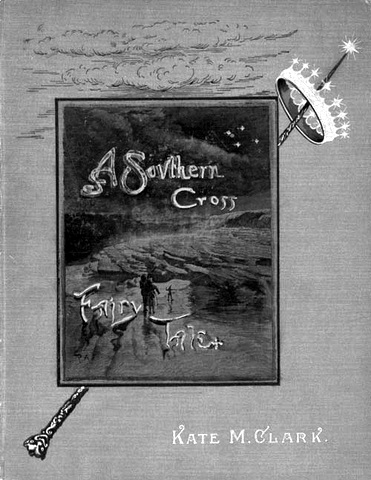CLARK, Kate Emma McCosh
As Kate Emma Woolnough, she was born at Ipswich on 15 May 1847, daughter of Henry Woolnough, an architect, and his wife Susan née Bonner (1816-25 January 1862) who married at Ipswich on 4 November 1846. Her parents both died in 1862 and Kate worked in London where she earned a living doing research for writers, often in the British Museum and at the same time studied art. She then went to Australia where she married at Melbourne on 8 April 1875, James McCosh Clark (12 August 1833–26 January 1898), who became wealthy through his investments in Thames gold-mining companies, particularly the Moanataiari, of which he was a founder and for some years a director and chairman and senior partner in the family business, Archibald Clark & Sons. After her marriage she and James made their home in Portland Road, Remuera, Auckland, where their five children were born. Kate was described as an excellent musician, 'an accomplished painter and a woman of rare, good sense', she was a generous patron of music and art. At her home, The Tower, Remuera, she organised groups of women for painting, reading and dramatic activities and she and her husband helped to reform the Auckland Society of Artists as the Auckland Society of Arts in 1880 and Kate, who was on the society's committee for 10 years, exhibited oils, watercolours and drawings and husband James was president 1881-1888 and they made generous donations of pictures to the Auckland Art Gallery when it opened in 1888. From 1879 to 1881 James was president of the Auckland Chamber of Commerce and in 1880 a member of a royal commission investigating the country's railways and in 1879 published an influential analysis of New Zealand's finances, arguing that an inadequate share of government loan expenditure was allocated to Auckland. Kate Clark was an important figure in charitable organisations in the city and in 1882 she worked closely with Eliza Cowie, wife of the Anglican bishop of Auckland, to establish the Girls' Friendly Society, of which she was vice-president and was on the management committee of the Women's Home in Parnell, for which her principal role was that of publiciser and fund-raiser and was involved in the Jubilee Institute for the Blind. The family firm continued to prosper in the 1880s, but James McCosh Clark's other commercial ventures were less successful as, like many other business leaders, he was infected by the speculative mentality engendered by gold discoveries and was encouraged by the economic boom of the early 1880s, he borrowed heavily to invest in several ambitious companies. The Te Aroha Battery Company, which he established with Josiah Firth, yielded little gold and was sold in 1887 at great loss and in December 1881 he was one of a group which set up the Thames Valley and Rotorua Railway Company to open-up land acquired from the Maori. With Thomas Russell and others, he was involved in the New Zealand Native Land Settlement Company, formed to sell land they had acquired in Waikato to British investors and settlers, but as the economy declined, few sales were made. At the height of his popularity as mayor, McCosh Clark was described as 'one of our nouveaux riches'. In 1889 there was little esteem or sympathy for him when, after several business failures, together with his wife Kate, he left New Zealand for England. In England Kate Clark pursued a career as a writer, and completed her first book, which she partly illustrated, 'A Southern Cross Fairy Tale' (1891) and in 1894 she published a collection of verse, 'Persephone and Other Poems' and her last work was 'Maori Tales and Legends' (1896), in addition to her books she also wrote newspaper articles and short stories for magazines. She painted in oils, watercolours, and drew with pen and ink and exhibited at Society of Artists, Auckland 1879; Australian Society of Authors (ASA) from 1881 (on committee for over 10 years); NZ Industrial Exhibition 1885; Centennial Exhibition, Melbourne 1888–89 and in England was a member and exhibitor at the Ipswich Fine Art Club in 1890. In 1899 Kate Clark represented the National Council of Women of New Zealand at the London meeting of the International Council of Women. James McCosh Clark died at St Leonards-on-Sea, Sussex, on 26 January 1898, and Kate returned to New Zealand in 1900. Little is known of her life after this time and Kate Emma McCosh Clark died at Walmarama, Bassett Road, Remuera, Auckland on 30 November 1926, aged 70, survived by her two sons. Her sister Emily Sarah Woolnough (1853-1920), married artist Edward Payton (1854-1944).
Works by This Artist

|
A Southern Cross Fairy Tale |